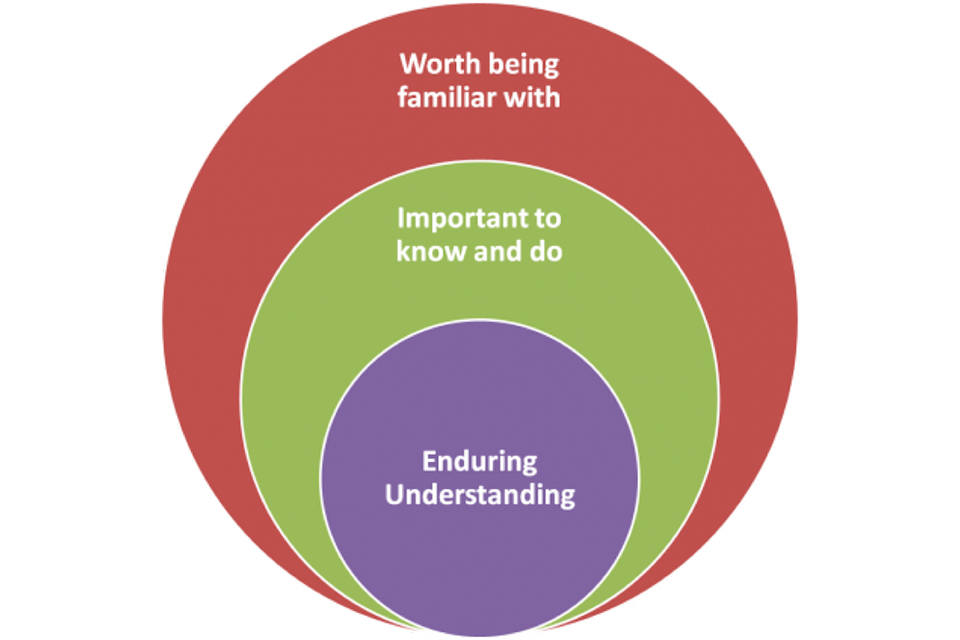Stage One: Identify Desired Results
In the first stage of backward design, the instructor must consider the learning goals of the lesson, unit or course.
Wiggins and McTighe provide a useful process for establishing curricular priorities. They suggest that the instructor ask themselves the following three questions as they progressively focus in on the most valuable content:
What should participants hear, read, view, explore or otherwise encounter?
This knowledge is considered knowledge worth being familiar with. Information that fits within this question is the lowest priority content information that will be mentioned in the lesson, unit, or course.
What knowledge and skills should participants master?
The knowledge and skills at this substage are considered important to know and do. The information that fits within this question could be the facts, concepts, principles, processes, strategies and methods students should know when they leave the course.
What are big ideas and important understandings participants should retain?
The big ideas and important understandings are referred to as enduring understandings because these are the ideas that instructors want students to remember sometime after they've completed the course.
The Three Ideas

The graphic above illustrates the three ideas. The first question has instructors consider the knowledge that is worth being familiar with which is the largest circle, meaning it entails the most information. The second question allows the instructor to focus on more important knowledge, the knowledge and skills that are important to know and do. Finally, with the third question, instructors begin to detail the enduring understandings, overarching learning goals, and big ideas that students should retain.
By answering the three questions presented at this stage, instructors will be able to determine the best content for the course. Furthermore, the answers to Question 3 regarding enduring understandings can be adapted to form concrete, specific learning goals for the students; thus, identifying the desired results that instructors want their students to achieve.